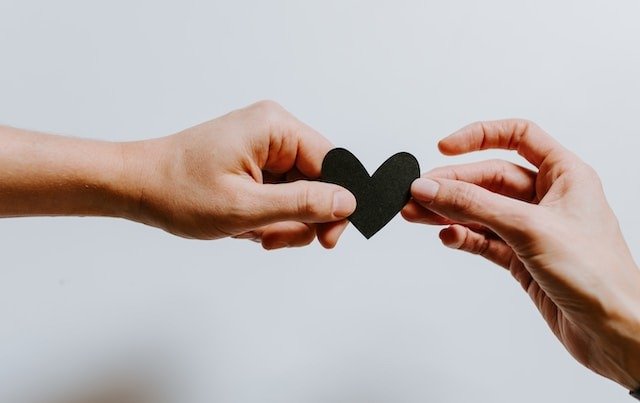The search for love in today’s dating landscape can be a daunting task. With the advent of dating apps, the common phenomenon of ghosting, and the pervasive presence of social media, finding genuine connections can seem like a steep climb. Various factors, such as commitment issues and unrealistic expectations, can further complicate the process. Let’s examine the obstacles modern daters face and how they affect their pursuit of love. We will take a closer look at the impact of dating apps and the fear of commitment, among other complexities. Join us as we explore the challenges of modern dating.
The Impact Of Dating Apps On Genuine Connections
Dating apps have revolutionized the way people meet and connect, but they have also introduced new challenges in the search for genuine love and connection. The widespread use of dating apps, such as Tinder and Bumble, has led to a culture of swiping and instant gratification. While these apps offer a wide pool of potential partners, they can also lead to a lack of authentic communication and a focus on superficial qualities.
One of the main challenges with dating apps is the overwhelming number of options. With a simple swipe, users can dismiss potential matches and move on to the next profile. This endless choice can make it difficult to settle on one person and fully invest in getting to know them. The abundance of options can lead to a mentality of always looking for [2] something better, which can prevent individuals from forming genuine connections.
Additionally, the “gamification” of dating apps, with their swipe-based interfaces and match notifications, can create a sense of addiction and compulsive behavior. The constant need for validation and the pursuit of matches can distract users from engaging in meaningful conversations and building authentic connections. Instead of focusing on getting to know someone on a deeper level, the emphasis is on getting more matches and accumulating likes.
Moreover, the curated nature of dating app profiles can contribute to a lack of authenticity. Users have the ability to carefully select and present themselves in the most favorable light, often highlighting only their best qualities. This can create an unrealistic image of oneself and others, leading to disappointment and a lack of trust when meeting in person. The pressure to present oneself in the best possible way can also cause individuals to feel insecure and compare themselves to others.
Furthermore, the convenience and accessibility of dating apps can reduce the motivation to invest time and effort in building genuine connections. Many users admit to rarely going on in-person dates with their matches or resisting messaging them, preferring to keep the dating process online. This lack of commitment to meeting in person and engaging in real communication [1] can hinder the development of deeper connections and prevent the formation of meaningful relationships.
Overall, dating apps have transformed the dating landscape, offering a wide range of potential partners at the swipe of a finger. However, these apps can also create obstacles to finding genuine love and connection. The culture of instant gratification, the overwhelming number of options, the lack of authenticity, and the resistance to in-person communication all contribute to the challenges faced by individuals looking for true and meaningful connections.
In order to navigate these challenges, it is important for individuals to be mindful of the potential pitfalls of dating apps and actively work towards building genuine connections. This can involve setting boundaries on app usage, prioritizing quality over quantity in matches, and engaging in meaningful and authentic conversations. By focusing on building genuine connections rather than simply accumulating matches, individuals can increase their chances of finding lasting love in the digital age.
Ghosting: The New Norm In Modern Dating

Ghosting has become a prevalent behavior in modern dating, leaving many individuals feeling confused, hurt, and frustrated. Instead of having open and honest conversations about their lack of interest, people choose to disappear without any explanation. This pattern of ghosting has become so normalized that it is now considered the new norm in the dating [3] world.
The rise of technology and online dating has made it easier for people to connect with others, but it has also created a culture of disposability. With countless options available at their fingertips, many individuals approach dating with a consumer mindset, constantly searching for someone better. This has led to a lack of commitment and a disregard for the feelings of others.
Ghosting is more than just a lack of communication; it is a cruel and hurtful behavior. When someone suddenly stops responding or disappears without a trace, it leaves the person on the receiving end with feelings of self-doubt and insecurity. They can’t help but question what they did wrong or why they weren’t enough. This constant self-analysis can crush their self-esteem and make it difficult for them to trust again.
What makes ghosting even more painful is the lack of closure it provides. The person who gets ghosted is left with a void of uncertainty, wondering what went wrong and why the other person chose to end things this way. Without any explanation, they are left to fill in the gaps themselves, often blaming themselves for the failed connection. This lack of closure can leave lasting emotional scars and make it hard for them to move on.
Unfortunately, ghosting is not just limited to online dating. It can happen even after meeting someone in person. You may have shared a great connection, gone on multiple dates, and felt like things were progressing well, only to have the other person suddenly disappear from your life. This kind of ghosting can be even more confusing and hurtful, as you were led to believe that there was something special between you.
The normalization of ghosting has changed the way people approach dating apps and online platforms. Instead of naively expecting all roses and butterflies, individuals become more cautious and guarded. They learn not to invest their time and energy too quickly, as they have experienced the heartbreak of being ghosted before. They become more selective and take their time getting to know someone, guarding their heart from further pain.
The dating landscape has changed, and ghosting has become a common practice. It may be tempting to blame technology or the abundance of options available, but at the end of the day, ghosting is a reflection of how some people choose to approach relationships. It is important to remember that ghosting says more about the other person than it does about you. It is not a reflection of your worth or desirability.
In this new era of dating, it is important to prioritize open and honest communication. Instead of disappearing without a trace, have the decency to have a conversation with the person you’re no longer interested in. Treat others with respect and empathy, recognizing that everyone deserves closure and understanding. By doing so, we can create a dating culture that values transparency, honesty, and emotional well-being.
Social Media’s Impact On Unrealistic Standards And Expectations

Social media has profoundly influenced our perceptions of love and relationships, often leading to unrealistic standards and expectations. The constant exposure to curated and idealized versions of other people’s love lives can create a distorted view of what a healthy and fulfilling relationship should look like. As a result, many individuals find it challenging to navigate the dating world and form genuine connections. Here are some ways in which social media contributes to [4] these challenges:
1. Fetishization of unrealistic relationship standards
Social media platforms often showcase picture-perfect couples who seem to have an effortless and flawless love life. These portrayals can create the illusion that everyone else’s relationships are better, more exciting, and more romantic than our own. It’s important to remember that social media is a highlight reel, and behind the scenes, every relationship has its ups and downs.
2. Lowered expectations and skewed perspectives
Constant exposure to romanticized representations of love can distort our perceptions of what is realistic and attainable. We might start to believe that passionate, fairytale-like love should be the norm, leading us to overlook the small daily acts of love and affection that actually sustain a healthy relationship.
3. Comparisons and feelings of inadequacy
Social media encourages comparison, with users showcasing only their most perfect moments. This constant exposure can make individuals feel inadequate, as they compare themselves to the flawless relationships they see online. It’s important to remember that everyone’s relationship has struggles, and what is portrayed on social media is only a small part of the whole picture.
4. Pressure to present a perfect image
Social media has normalized the idea of crafting a curated online persona, including how we present ourselves in relationships. This pressure to showcase only the most desirable aspects of our love life can create a sense of inauthenticity and hinder genuine connections.
5. Distortion of communication and intimacy
Excessive reliance on digital communication can hinder the development of genuine emotional connections. Social media interactions lack the nuances of in-person communication, leading to a lack of understanding and emotional depth in relationships.
To navigate the challenges posed by social media, it’s important to be mindful of its influence and consciously manage our expectations:
6. Practice self-awareness
Recognize that what you see on social media is not an accurate representation of reality. Remember that every relationship has its unique strengths and challenges, and it’s essential to focus on your own journey instead of measuring yourself against others.
7. Embrace authenticity
Strive for genuine connections both online and offline. Be yourself and encourage your partner to do the same. Transparency and vulnerability are crucial for building meaningful relationships.
8. Limit social media exposure
Take breaks from social media or adjust your settings to limit exposure to idealized representations of relationships. Remember that real-life connections and experiences are far more valuable than what is portrayed online.
9. Communicate and set boundaries
Have open and honest conversations with your partner about the impact of social media on your relationship. Discuss boundaries regarding privacy, posting, and the role of social media in your lives.
10. Focus on real-life experiences
Prioritize spending quality time with your partner in person. Engage in activities that foster genuine connections and create lasting memories.
By being mindful of the influence of social media and actively managing our expectations, we can navigate the challenges of finding love in the modern world more effectively. Remember that genuine connections are built on trust, authenticity, and shared experiences, rather than the unrealistic standards portrayed on social media.
Fear of Commitment and the Quest For Perfection

Dating in today’s world can be a difficult and complex experience, with numerous challenges and obstacles to overcome. One of the main challenges that people face is the fear of commitment. Many individuals are afraid of entering into a committed relationship because it requires vulnerability, emotional investment, and the possibility of being hurt. The idea of opening oneself up to another person and potentially becoming emotionally dependent on them can be intimidating and overwhelming.
This fear of commitment often stems from a desire for perfection. In today’s society, there is a strong emphasis on finding the “perfect” partner, someone who meets all our criteria and fulfills all our needs and desires. This mentality can lead to a never-ending search for someone better, always looking for that elusive “perfect” person who doesn’t even exist. We may discard potential partners at the first sign of imperfection and constantly compare them to an unattainable ideal.
Another factor that contributes to the fear of commitment is the fear of feeling trapped. Many individuals have a deep-rooted fear of losing their freedom and independence by committing to someone else. They worry that a committed relationship will limit their options and opportunities for personal growth. This fear is often magnified by societal pressures and expectations, which emphasize the need to achieve certain milestones by a certain age, such as getting married or having children.
Furthermore, the baggage from past relationships can also hold us back from committing. Negative experiences, such as a difficult breakup or witnessing the failure of our parents’ relationship, can create a fear of repeating the same patterns and experiencing the same pain again. We may have trust issues, fearing that history will repeat itself and that we will once again be hurt or rejected.
Lastly, the quest for perfection and the fear of commitment often stems from a desire to avoid vulnerability. Being vulnerable requires opening up and expressing our true selves, with all our strengths and weaknesses. It means taking risks and allowing ourselves to be seen and known by another person. This level of vulnerability can be uncomfortable and scary, as it leaves us exposed to the possibility of rejection and heartbreak.
The fear of commitment and the quest for perfection are two significant challenges that people face when it comes to finding love in today’s world. These fears can prevent us from experiencing genuine connections and meaningful relationships. However, by acknowledging and addressing these fears, we can overcome them and open ourselves up to the possibility of finding love and happiness. It is important to remember that no one is perfect, and a truly fulfilling relationship [5] is built on acceptance, understanding, and genuine connection.
Navigating the modern dating landscape is no easy feat, with numerous challenges and obstacles to overcome. By recognizing the challenges we face and actively working towards building authentic connections, we can increase our chances of finding lasting love in the digital age. It takes effort, patience, and a willingness to be vulnerable, but the rewards of finding a genuine connection are well worth the journey. Remember, the key to finding love is not about finding the perfect person but about building a deep and meaningful connection with someone who accepts and understands us for who we are.
References
[1] Dating apps can make it harder to find love: study
[2] Key findings about online dating in the U.S.
[3] Are dating apps on their way out? New study reveals success …
[4] Chapter 4: Social Media and Romantic Relationships
[5] Dating and Relationships in the Digital Age
Neal has more than 10 years of experience as a dating coach. He has guided 100+ men and women through the intricate art of courtship and transformed their love lives. Neal’s knowledge of dating strategies, coupled with his genuine empathy and understanding, allows him to help his clients foster genuine and meaningful relationships.



